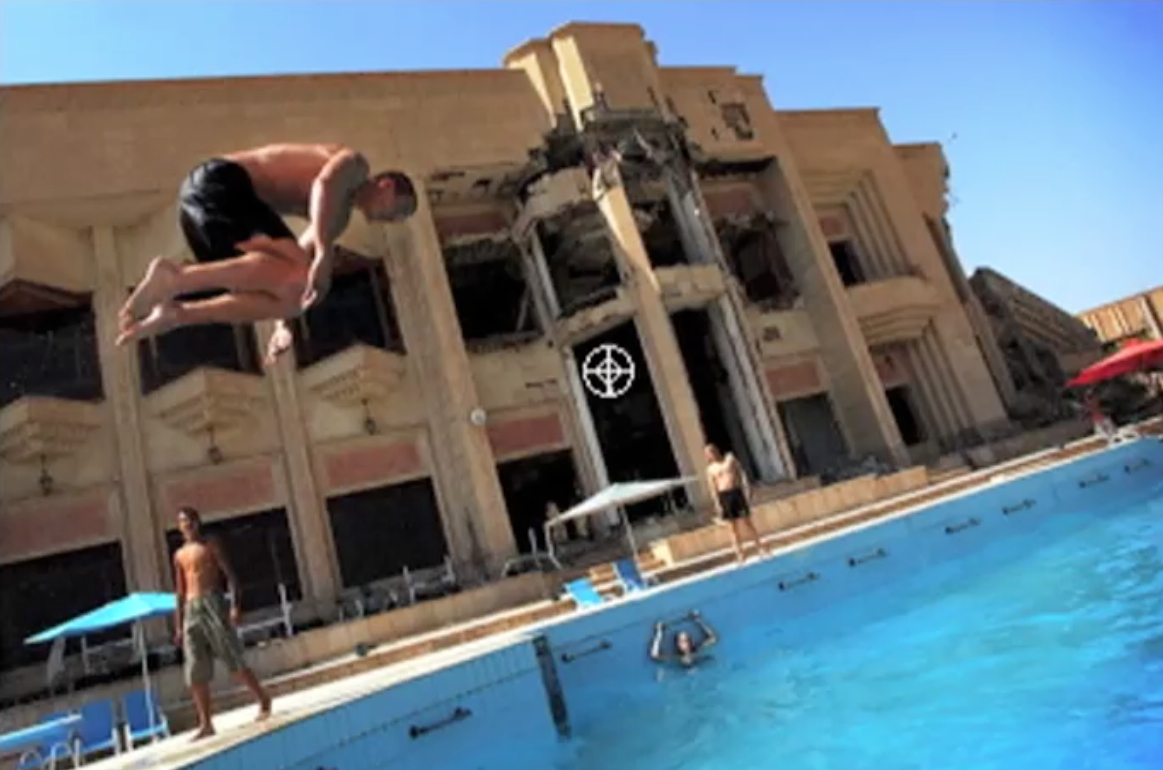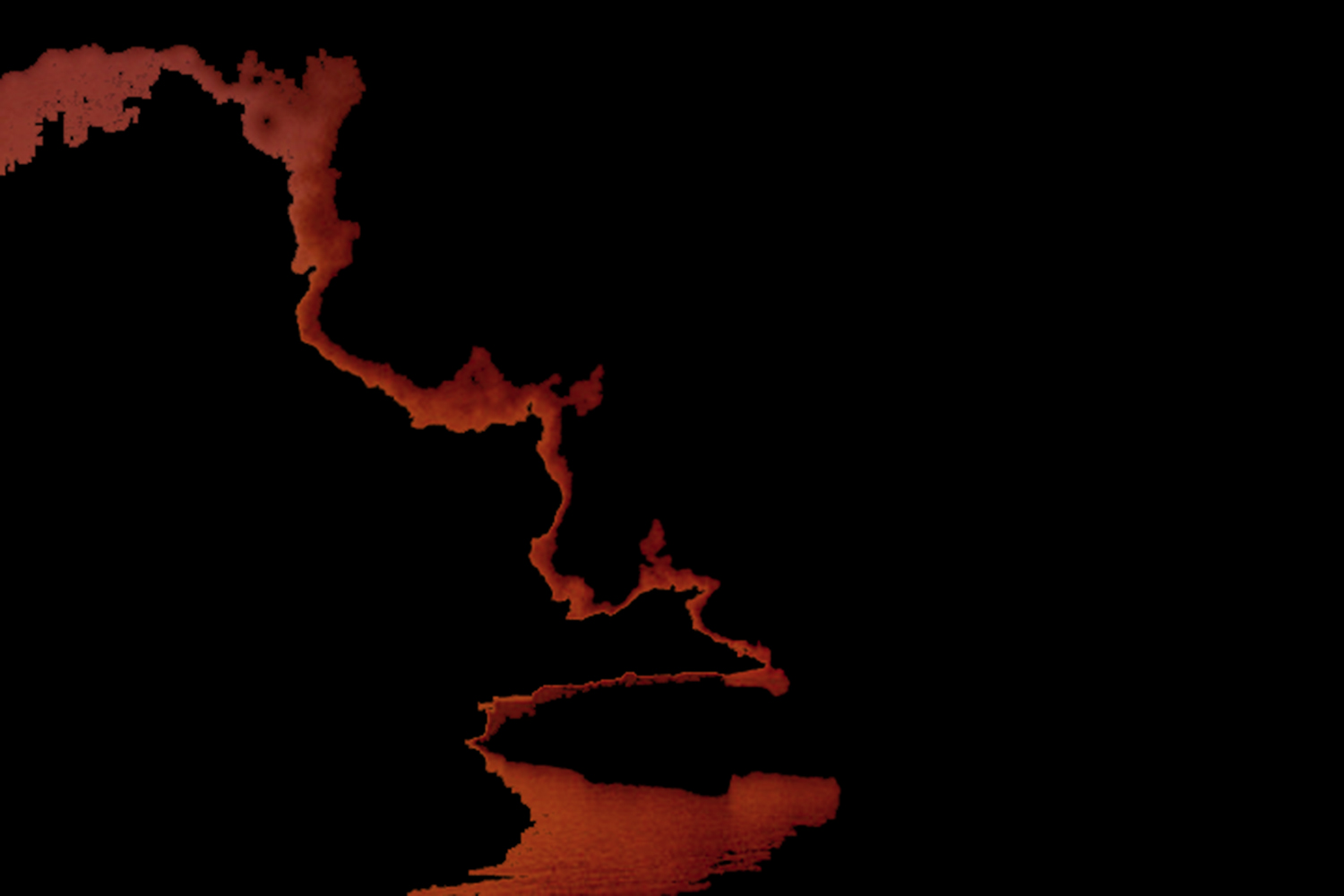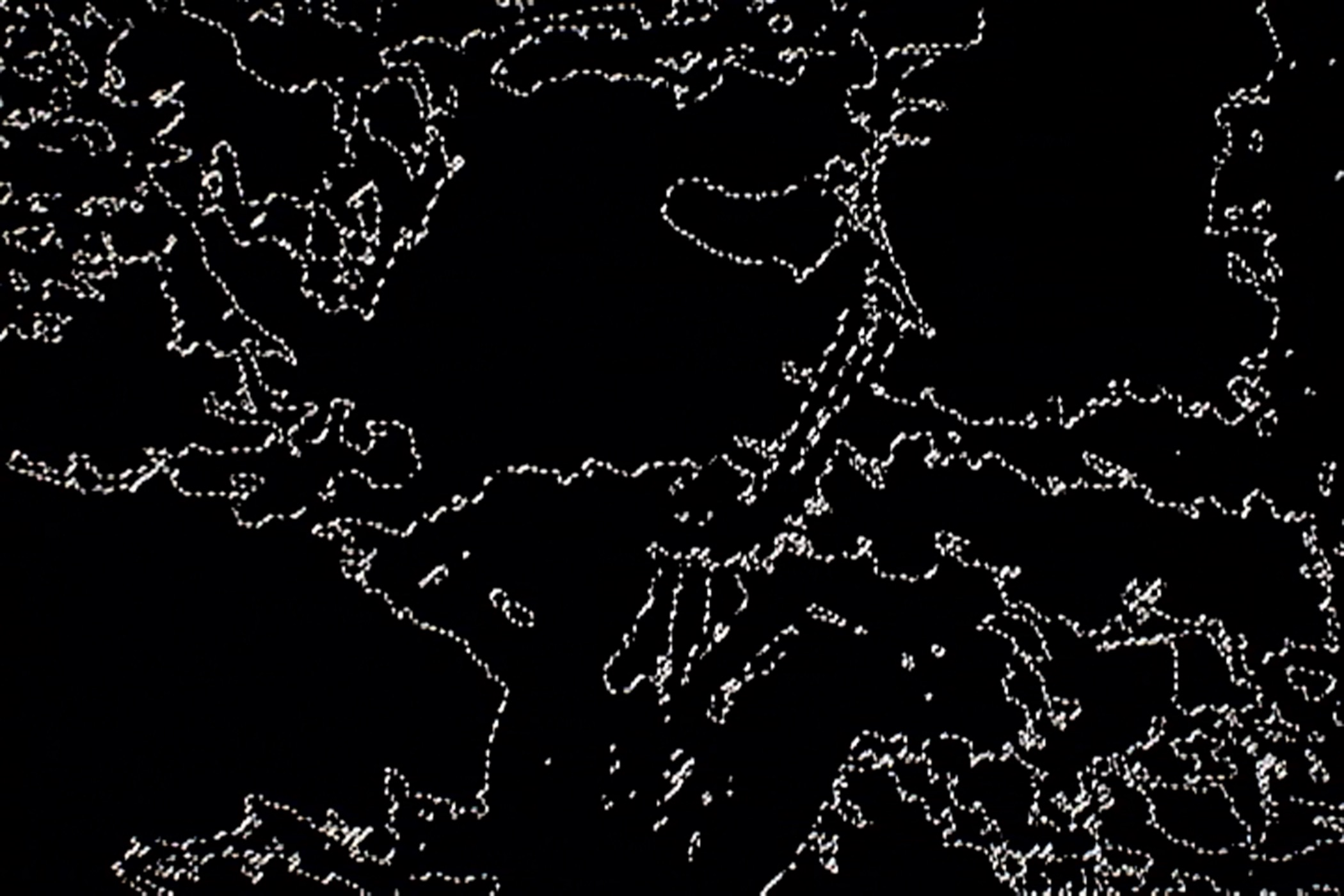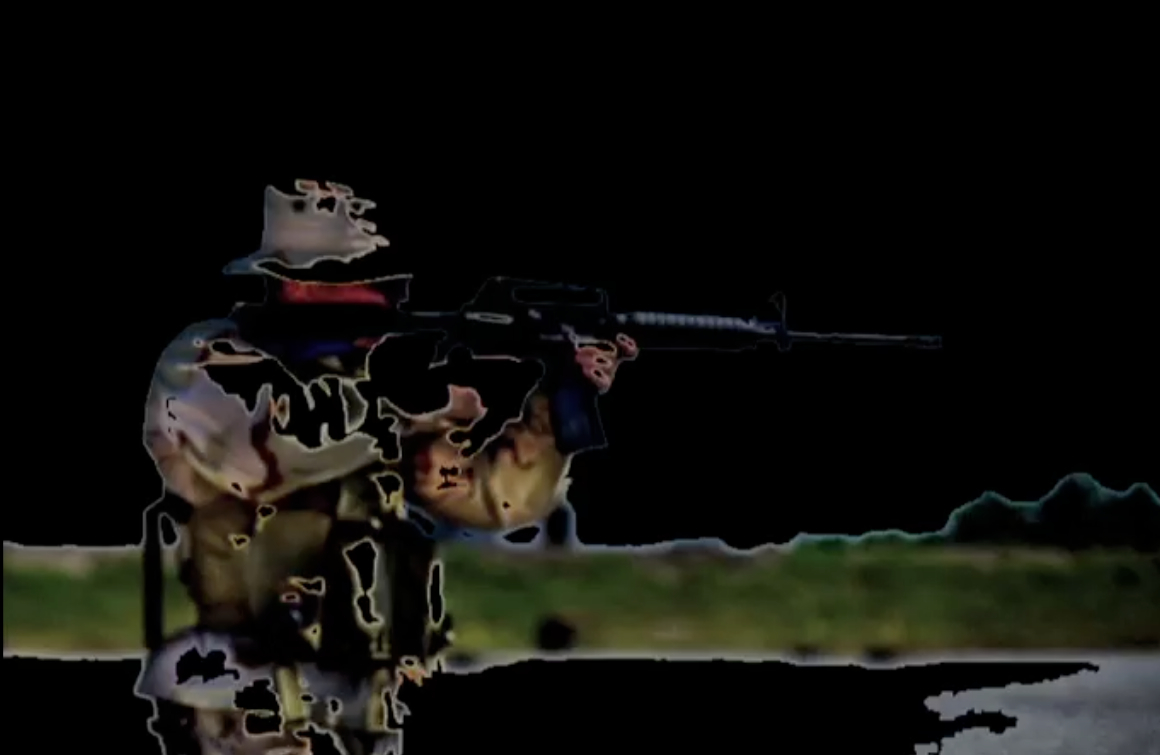Invisible Tracks - Three single-channel video loops, 2009
Clone
Magic Wand
Marching Ants
In this body of work, a variety of recent photojournalistic images of Iraq, gathered from news agencies and stock photographs, were taken out of context, pulled apart, erased, delineated and reassembled. The images range from the disturbingly familiar scenes of military disaster, lesser-known scenes of home life, and a group of leisure photographs, with both soldiers and civilians enjoying themselves despite the overwhelming situation that surrounds them. The underlying structure of the application Adobe Photoshop, popular software used for retouching and manipulating photographic images, is revealed by the representation of several tools, such as the magic wand selector and the checkered backgrounds that connote transparency. Procedural tools are typically hidden from view, used to adjust the image prior to its final presentation, the final gesture of which is richly called “flattening.” Revealing the structure is a reminder that these images are capable of being altered continuously, from the photojournalist’s chosen composition, to the method used to deploy the images, to the hand of the artist, myself. More than a transgression, the way I disclose the manipulation performed upon images serves as an attempt to form a more active relationship with them. As the images are taken apart, a desire to see them reassembled arises, signifying an interest in connecting with the images. When reassembled, their latent power is emphasized.
The variety of images is crucial in my attempt to avoid perpetuating a “standard” image of Iraq, i.e. the destroyed site. However, no matter how many of these iconic images we see, they are impossible to ignore. I believe that through the combination of familiar and unfamiliar imagery, the aftermath paired with the fragile present, a negotiation of the convoluted relationship between spectatorship and empathy can be explored.



